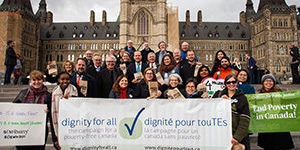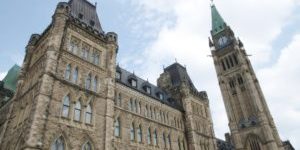Environmentalists and climate justice advocates have been sitting with the outcomes of the UN climate conference in Katowice, Poland (COP24) for the last few days, trying to decide what to make of it.
Change-makers are generally pretty positive people. We tend to see the best in situations. We trust what people say. And, we have to believe that by working together, we can create a better world.
Following the proceedings in Poland, however, our optimism – our hopefulness – waned. Deliberations around whether to “welcome” or “note” the Intergovernmental Panel on Climate Change (IPCC) report on the implications of global warming beyond 1.5°C over pre-Industrial levels signalled a reticence of governments to accept the science of climate change. The pleas of Indigenous peoples and representatives of low-lying island states stressed the moral imperative of taking far-reaching action. Yet presidents, prime ministers, and environment ministers made vague references to some distant intention to develop stronger targets. This was utterly deflating. Populism, fear-mongering, and willful ignorance exacerbate our frustration even further.
Isn’t it abundantly clear that we – ALL of us – need to do things differently?
The science is in: we have until 2030 to dramatically change course and avoid serious climate consequences. Specifically, the IPCC says, “limiting global warming to 1.5 C … require[s] rapid and far-reaching transitions in energy, land, urban and infrastructure, and industrial systems… [and] can only be achieved if global CO2 emissions start to decline well before 2030.”
This is a global consensus – written by over 90 climate scientists from 40 countries with more than 6,000 scientific references. Action to address climate change is no longer optional (truth be told, it hasn’t been optional for the last 20+ years!).
Federal government representatives – mostly Prime Minister Trudeau and Minister McKenna, though some backbenchers too – remind us regularly of all of the actions that have been developed and implemented as part of the Pan-Canadian Framework on Clean Growth and Climate Change (PCF).
A lot has indeed been done over the last three years: methane regulations, a commitment to phasing-out coal-fired electricity, historic investments in public transit, huge steps towards a cross-Canada price on carbon emissions, and just today, a framework for the clean-fuel standard.
Yes, this – and more – has been in the context of growing GHG emissions, vocal opposition.
So why all the frustration?
- Because federal ministries are working at cross-purposes and the emerging contradictions are largely unacknowledged (namely, the continued subsidization of the fossil fuel industry, the purchase of a pipeline project, and the bail-out of the oil and gas industry this week to the tune of $1.68 billion).
- Because of the backsliding (for example, the weakening of the output-based pricing system for the country’s largest emitters).
- Because of the misleading rhetoric (especially that the government implies that their emissions-reduction target is consistent with the temperature goals of the Paris agreement – far from it!).
Most of all, climate activists (and youth and small nation states and Indigenous peoples… ) are frustrated because even with all that is being done, it isn’t enough. Officially there is still a 79 megatonne shortfall of emission reductions expected from the suite of policies under the PCF against Canada’s weak emissions-reduction target.
Sometimes, the best way to navigate out of a dark place is to lead with gratitude.
Gratitude that during the first week of COP24, the Local Communities and Indigenous Peoples Platform was adopted, official bringing the concerns and perspectives of these traditionally marginalized communities into the formal process of the UN Framework Convention on Climate Change.
Gratitude for colleagues, members and staff of Climate Action Network and other climate heroes, were present in Poland, pressing negotiators, lobbying the Canadian delegation, and emphasizing the need for both increased climate ambition and greater accountability from the Canadian government.
Gratitude that international church leaders were also there, reminding the world in a statement from the faith communities to the Plenary of the High Level Ministerial Segment of COP24 (World Council of Churches) that “the cry of the impoverished and the groaning of the Earth grow stronger.” And that “our faiths demand that we act for the protection of the vulnerable and as caretakers of Mother Earth.”
Finally, gratitude for the young Swedish climate activist, Greta Thunberg. Prompted by desperation and a fear that her future wouldn’t come because of climate change, this articulate adolescent sat herself down outside the Swedish parliament, on strike from school. “The climate crisis has already been solved,” she said. “We already have the facts and solutions. All we have to do is to wake up and change.”
And in response to our search for hope, she says:
“We do need hope, of course we do, but the one thing we need more than hope is action. Once we start to act, hope is everywhere.”




